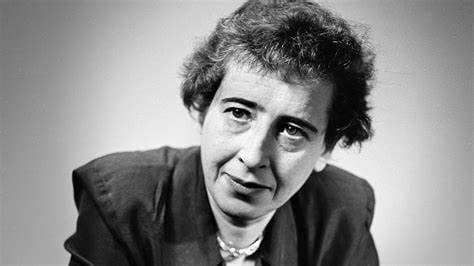Violence against women and the banality of evil

This is a note to two Fairfax media columnists (Jacqueline Maley and Waleed Ali) on the violence against women debate
Dear Jacqueline and Walid,
This about the opinion pieces you both wrote on the violence against women debate and your positions on the role of men. There seems to be some resistance at the idea of calling men out more generally in this debate, on the grounds that ‘all men are not like this’. At one level this may be true, but it is really not up to men to make that call, and more importantly pretty well all men could be or have been ‘like this’, and all men make some women nervous because of gender inequality, more so than the converse.
When I was at convent school 60 odd years ago we were taught of the notion of original sin, a sort of collective guilt, which I could not get my head around, but there may be an echo here. I’m also thinking a little a bit about Hannah Arendt’s thesis on the Banality of Evil in which she argues, among other things, evil is about an inability to see from other perspectives and people only see their own narrow, banal, (and dare I say inculcated) view.
This also goes to the terrorism and religion debates (and I’m not suggesting an automatic link), but there is a ‘banality of evil’ element here when religions don’t call out extremist behaviours in their own and other congregations. And here I’m thinking of the (stabbed) Assyrian priest whose sermons were called ‘fiery’, which struck me as code for not being able to see the view of others; or Israel Fulau and who branded gays as evil, and neither have been called out by any religious leaders. This happens with all religions who remain silent to the bases on others who may be different that they promote. Walid, I deliberately have not mentioned Islam here but you can see where I am coming from.
My upbringing in the 1950s and 60s was in an environment of what is now called coercive control (at last it has been given a name) but back then it was ‘so what’ and part of 'normal'. My mother died at an early age and the children have been scarred. If people were told this, they would ‘blame’ on it on my father being prisoner of war at Changi. I call that bullshit, because there are POWs who have chosen not to be violent to their family, and it is just like a lot of other ‘reasons’ (or rather, excuses) that are thrown about these days: poverty, alcohol, gambling etc. This violence still happens behind closed doors by men who ‘are not like this’, and are outwardly ‘normal’.
So to me one part of the solutions is to recognise we men are part of the problem rather than 'some men', and patriarchy has lot to answer for, and should be named and questioned much more often.
